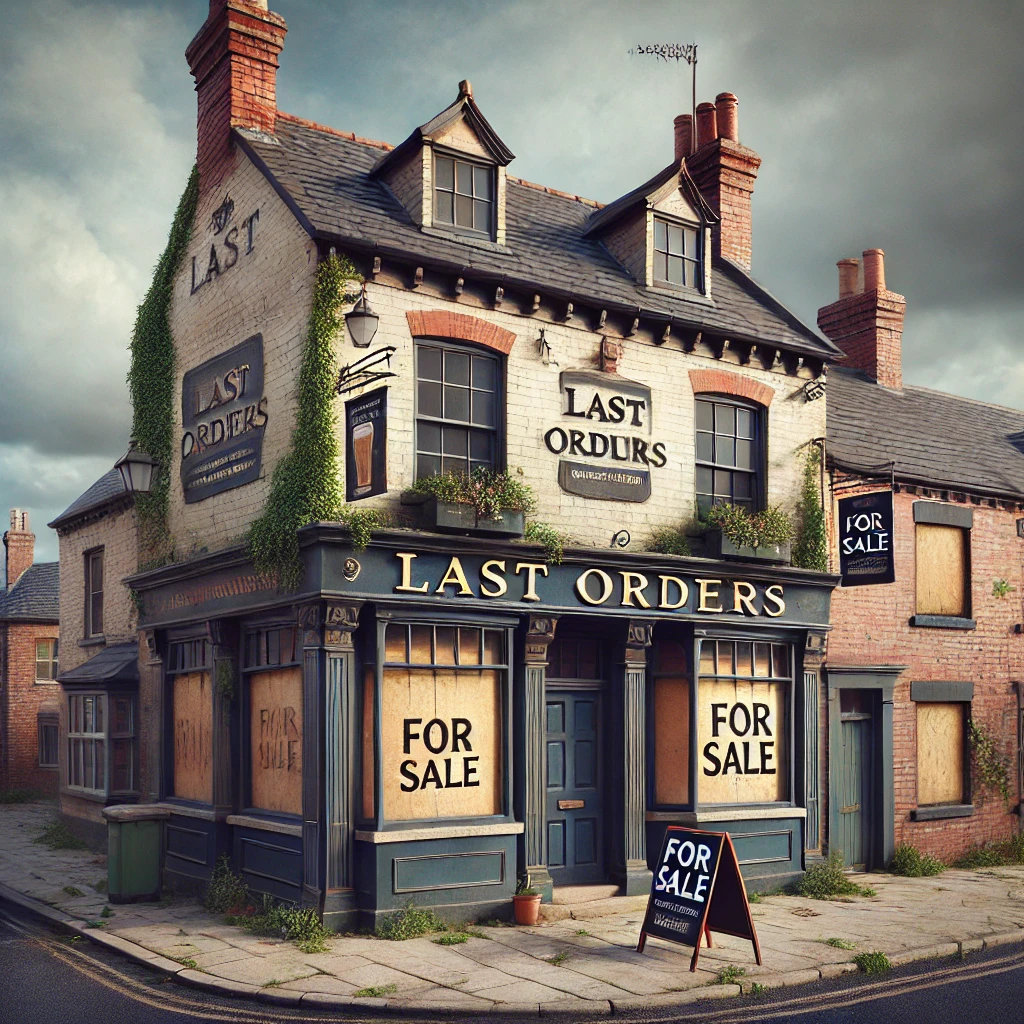The Survival of the Great British Pub
Introduction
Pub landlords up and down the UK are waiting for Labour’s first budget with a sense of impending doom. The British pub industry is at a crossroads. According to a recent projection by Togather, pub numbers could drastically decline to fewer than 1,000 by 2074 if closures continue unchecked. Currently, around 38,175 pubs operate across the UK, down from 41,015 a decade ago, with 2.1 shutting their doors every day! The ongoing pressures could lead to the number halving every ten years, meaning that by 2033, only about 18,000 pubs may remain.
Rising operational costs, supply chain instability, and shifting consumer preferences mean that the pressures on pub owners are more intense than ever. Behind every shuttered pub is a story of mounting financial pressures, vanishing foot traffic, and an uphill battle to adapt to changing times.
Pubs have always been more than just places to drink—they’re cultural institutions, community anchors, and, for many, a source of local identity. But, with profits dwindling, the pathway to financial stability can feel out of reach for many owners. While creativity and adaptability are essential, pubs also need systemic change and policy support to survive long-term.
Lobbying for Policy Support: A Collective Effort
It is imperative that the Government consider the impact of SMEs of its proposed tax rises and employment law changes. To keep introducing additional costs for a sector that is on its knees will ensure that this projection keeps going.
Lobbying for governmental support is essential to mitigate these financial challenges. The high rates and tax burdens many pubs face, coupled with the rising costs of rent and utilities, mean that immediate and substantial tax relief is crucial. Industry bodies are already pushing for reduced business rates, and support grants for struggling establishments, but to have a real impact, these efforts need sustained and unified government policy.
Without strong policy changes, many small, independently owned pubs may not be able to withstand future economic challenges.
Rethinking Offerings to Attract Broader Audiences
Its not just the government that needs to take action, however, pubs need to keep up-to-date and maybe rethink their positioning in the market.
Adaptation remains key, especially as patrons increasingly seek unique, experience-led outings. Yet, pub owners need practical, high-impact ideas that justify the investment of time and resources. For example:
- Activity-Led Options: Collaborating with local chefs to host hands-on cooking classes or putting on augmented reality history tours are examples of innovative offerings to bolster interest in visiting venues.
- Co-working Spaces for Quiet Hours: Rather than leaving seats empty during slower weekday hours, pubs can offer co-working spaces with power stations and reliable Wi-Fi, which can generate daytime revenue.
- Fare for the Health Conscious: Pubs need to consider the changing emphasis their customers are placing on their health. A good range of zero or low alcohol drinks is now a must. Healthy meat free options on the menu, aimed at more than vegans/vegetarians are important. Responsibly sourced food is also a growing requirement of many customers.
Strengthening Community Loyalty
Community-owned pubs are one example of fostering local pride, but other options like loyalty programs, local hero programs, and niche club nights are helping some pubs to rejuvenate the hub of community appeal. These efforts make customers feel not just like patrons but valued members of the pub’s ecosystem.
Conclusion: The Need for Balanced Action
While innovative ideas can certainly breathe new life into pubs, they are not enough on their own. Only by combining creativity with governmental support and strong community ties can pubs hope to navigate these turbulent times. British pubs are at a crossroads, and by supporting policy changes, embracing adaptation, and fostering community connection, the industry can work towards a sustainable future. For pub owners, the path forward may be challenging, but with the right strategies and support, they can continue to serve as the beating heart of British culture for years to come.
Need help rejuvenating your pub – why not get in touch!




